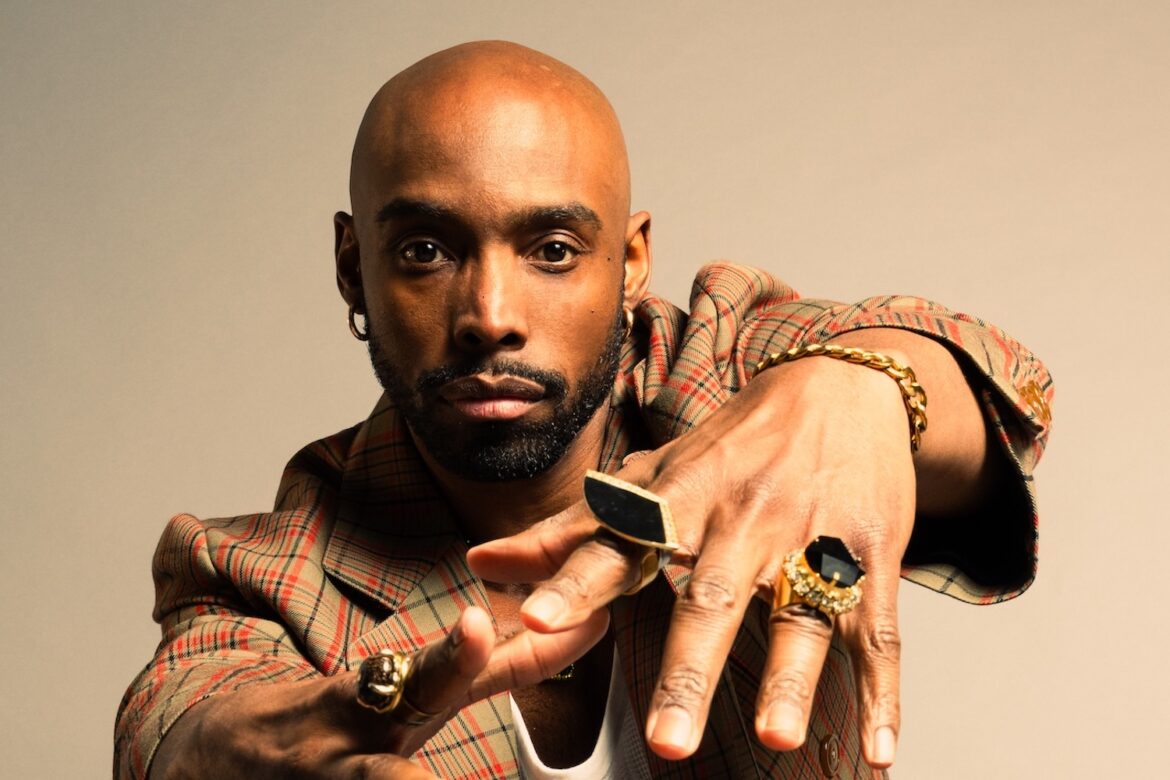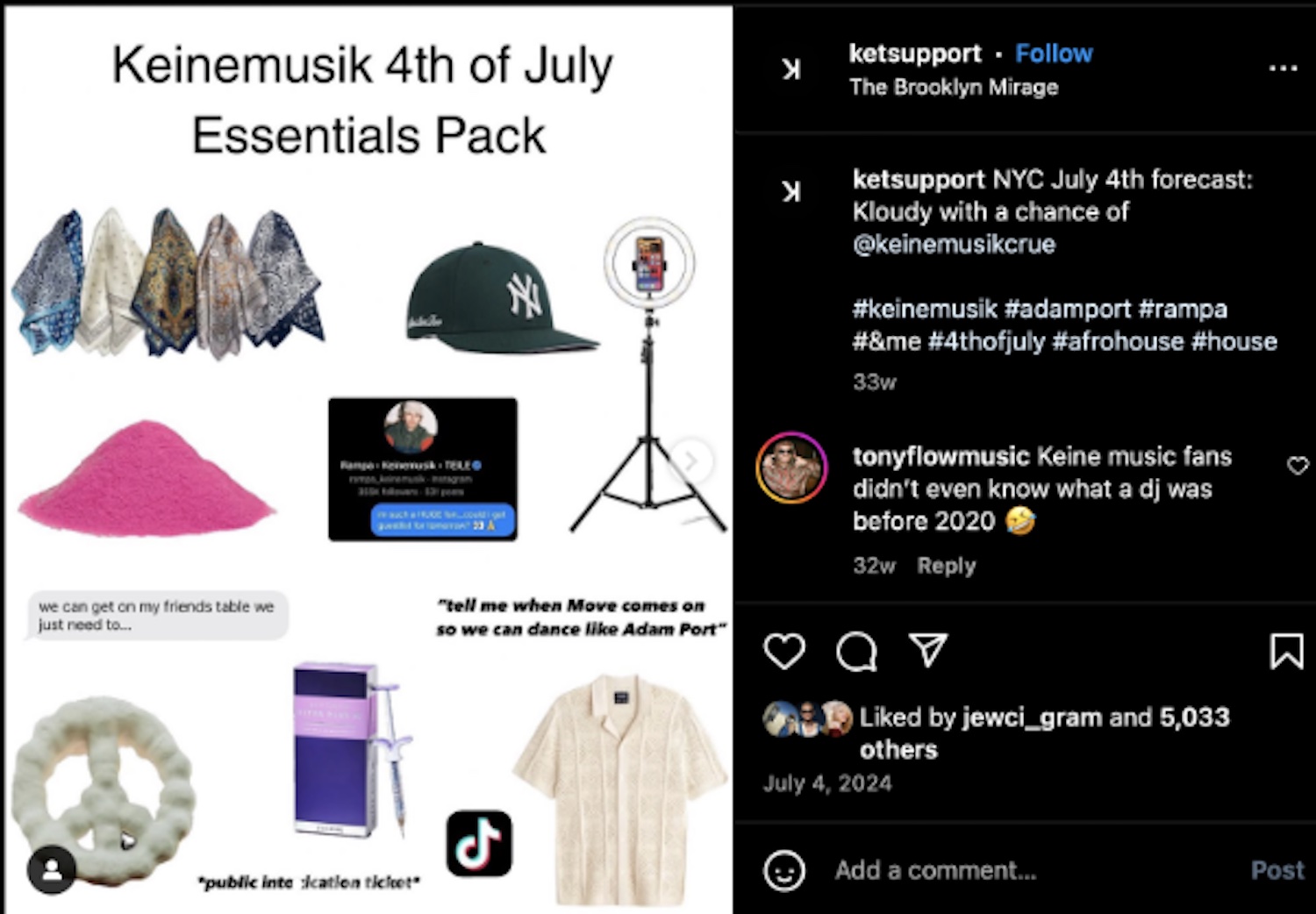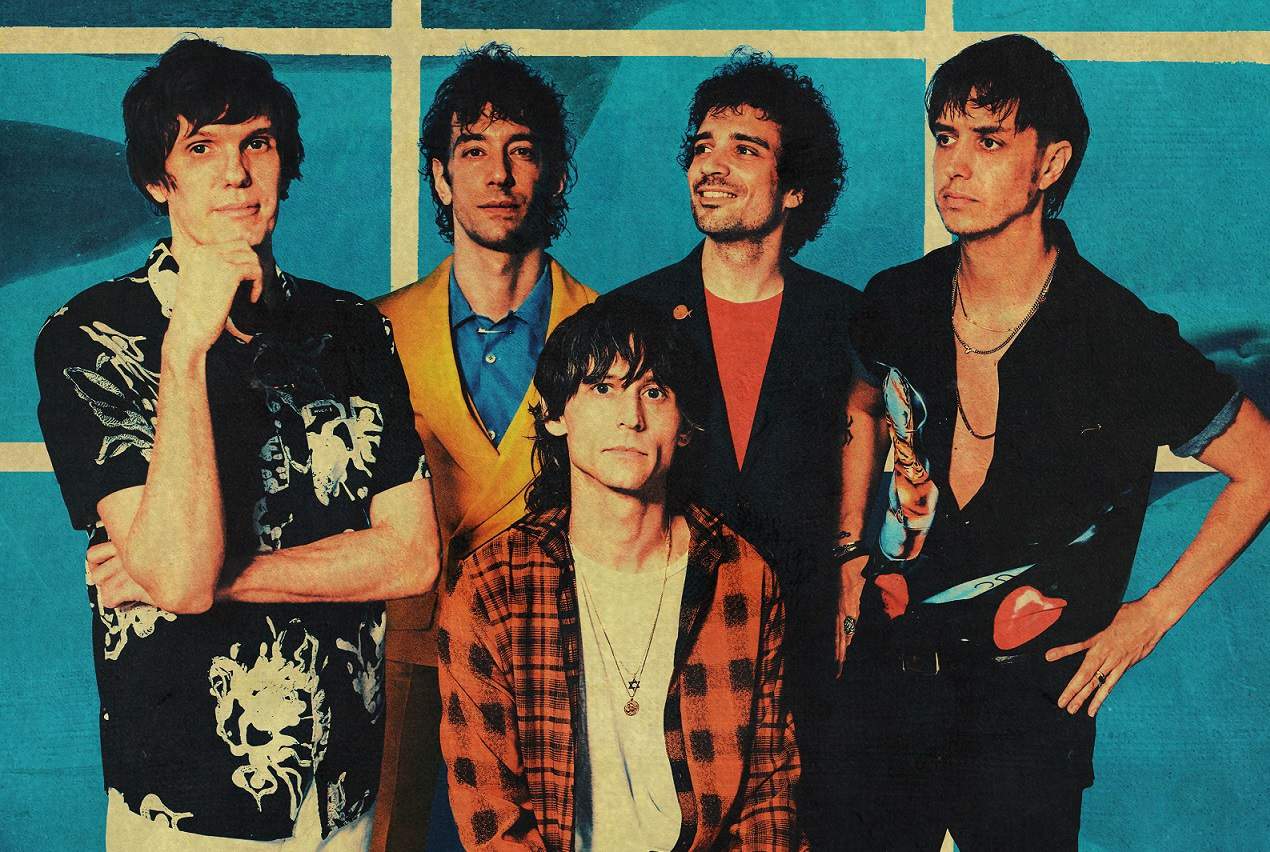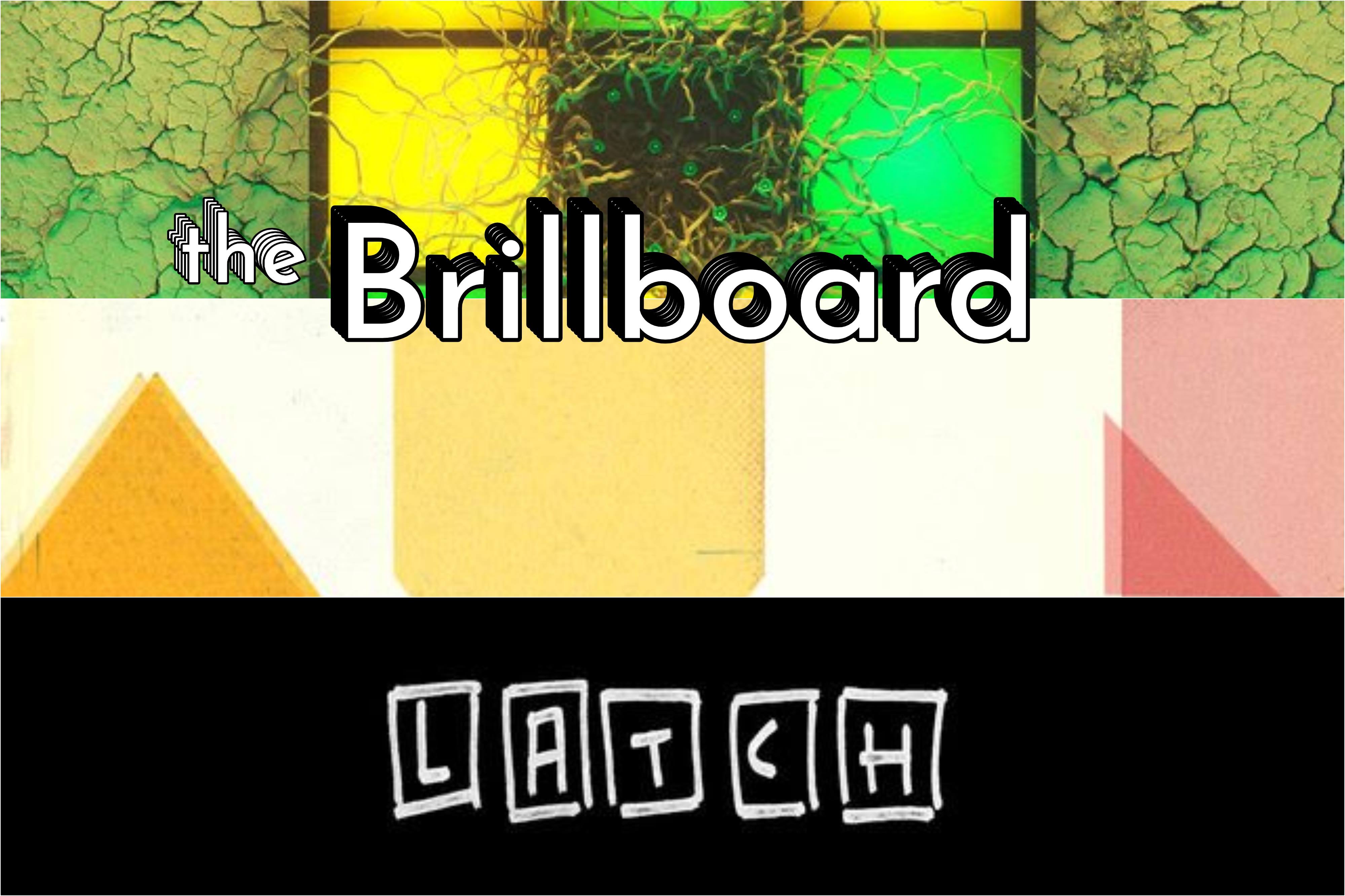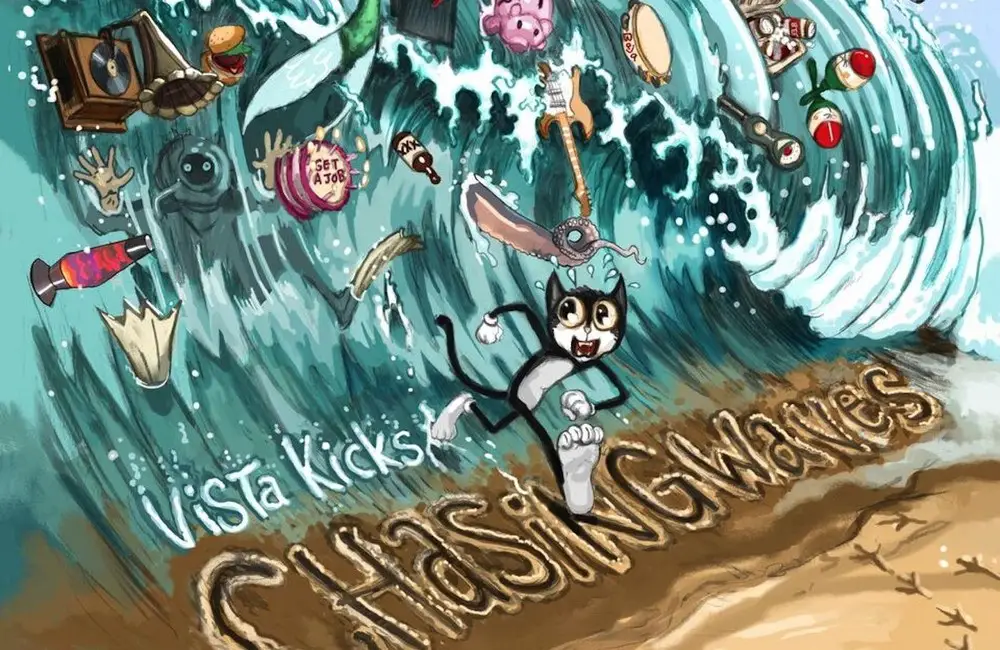In honor of Black History Month, Atwood Magazine has invited artists to participate in a series of essays reflecting on identity, music, culture, inclusion, and more.
•• •• •• ••
Today, singer, songwriter, and producer BL SUEDE shares his essay, ‘Afro House, Neoliberalism, and the Backlash Against Blackness,’ as a part of Atwood Magazine’s Black History Month series!
Brandon Lucas, aka BL Suede, is a versatile music producer, singer-songwriter and DJ blending R&B, Funk, Jazz and Gospel into Afro-house and soul-electronic music. Inspired by the oscillation and civil unrest during the pandemic, he launched his solo project earning critical acclaim from Billboard, Forbes, Grammy.com and Spin. 2024 was a breakout year for him and his latest project ‘Glam Life’ EP with Late Delivery was released this month through Tuskegee Music, founded by The Martinez Brothers and Seth Troxler. The ‘Glam Life‘ EP is a multifaceted ode to an iconic era in Black music culture. From BL SUEDE’s emotive vocals and Late Delivery’s joyous instrumentation to Kenny Glasgow’s minimal elegance and Afriqua’s genre-bending brilliance, each artist contributes a unique perspective.
He also has his ongoing ‘House of West’ project which is a collaboration with famed philosopher Dr. Cornel West, highlighting dance music as an integral part of Black musical tradition.
•• ••
•• ••
AFRO HOUSE, NEOLIBERALISM, AND THE BACKLASH AGAINST BLACKNESS

by BL Suede
As you step into Silo Brooklyn, a powerful blend of deep bass, syncopated rhythms, and rolling percussion fills the air.
It’s more than music – it’s a pulse, a communal heartbeat that unites everyone under a vibrant light show in the intimate club. Afro House is not just a genre; it’s a movement, a sanctuary, and a celebration of Black joy and cultural connection that you are now a part of.
The dance floor stretches back to the bar, packed with bodies swaying in harmony to the pulsating bass and thunderous percussion. The DJ, positioned in a Boiler Room-style setup, isn’t just playing tracks – he’s curating an experience, responding to the crowd as much as they respond to him. To his right, risers elevate the energy, while behind him, a raised stage becomes its own party. Melanated women twerk, men wave their shirts in sync with the beat, whistles blow, and fans clack at the perfect moments. The energy is electric – it feels like church, a celebration, a spiritual awakening. It’s lit.
This party, Descendants, is an Afro and culturally inspired electronic music event series. It embodies the roots of house music, where in which Black and brown, primarily queer men, created spaces to dance, sweat, and experience spiritual renewal. However, as Afro House gains worldwide popularity, an important question arises: Is its transformation a case of cultural appropriation as the genre is reshaped by non-Black DJs and artists and mainstream audiences? Or is there a deeper, more systemic force at play?
Cultural appropriation – the act of taking elements from a marginalized culture without understanding or respecting their origins – has played out repeatedly in music history, from rock to hip-hop, where Black artists innovate only to see their work repackaged for broader, often whiter, audiences.
Yet, while cultural appropriation may contribute to Afro House’s transformation, neoliberalism may be the broader force at play, prioritizing profit and individualism over cultural integrity. The term “woke,” which originated in Black communities as a call to remain aware of systemic injustices, has undergone a similar shift. As Erykah Badu once explained, “woke” means being in alignment with nature and aware of everything happening around you. However, the term was expanded by well-meaning white liberals beyond its original focus on racial justice, making it an easy target for backlash. This overcorrection by white liberals, who often pushed cancel culture and broadened “woke” into an all-encompassing ideology, made it easy for right-wing media and politicians to distort, reject and weaponize it, stripping it of its meaning and turning it into a catch-all attack on anything perceived as progressive or pro-Black.
In Trump’s America, “woke” is no longer just about racial awareness – it has become a cultural lightning rod. Could Afro House be following the same trajectory? As mainstream interest grows, is it being reshaped in a way that leads to its eventual devaluation and dismissal? While cultural appropriation plays a role, neoliberalism’s relentless drive for profit and marketability may be the real force accelerating both the genre’s transformation and the backlash it now faces.
How Neoliberalism Is Changing Dance Music
It may seem like a stretch, but today’s dance music culture reflects neoliberalism in several ways: DJs are elevated as superstars, massive LED screens overshadow their craft, and industry elites occupy VIP sections, disconnected from the dance floor. Many promoters have even expanded backstage areas to upsell exclusive access, exploiting consumerism and prioritizing revenue over the communal experience. As clubs worldwide struggle to stay afloat, commercial interests often take precedence over cultural preservation. Booking the biggest-selling act and pushing bottle service outweighs the quality of music or efforts to maintain a given genre’s roots.
As a result, the communal energy that once defined house music is being replaced by an individualistic pursuit of spectacle. The focus has shifted from the DJ setting the atmosphere so that the crowd creates the night to passive consumers watching the DJ perform – expecting to take and not necessarily participate. The lost art of dance battles, or simply vibing with a partner, has faded in many mainstream dance spaces. While Afro House still preserves this communal essence, neoliberalism is pushing it toward endangerment – transforming an inherently participatory movement into a commodified, sanitized version crafted for mass appeal.
A Glimpse of Hope Amidst Change
In this sea of melanin at Descendants at Silo that one night, two young men stood out. They weren’t the only non-Black persons there, but their looks read like your average white recent college grad in New York. One in a dad hat, an oversized T-shirt, and jeans, eyes-closed bobbing his head with a smile on his face. The other, in a black long-sleeved shirt, sweat dripping from his buzzed head, fist pumping taking in the energy of the moment. They weren’t outsiders observing from a distance – they were fully in-tune to the music and culture of the room. I thought to myself – these are the ones who truly love it. They’ll introduce it to their communities before the masses catch on, just as we saw with jazz, hip-hop, and the early days of house and techno.
Music has always been a bridge, a unifying force. Many non-Black artists have contributed meaningfully to Afro House, elevating its global presence. The house music trio Keinemusik, known for popularizing a melodic blend of Afro House and garnering a notorious following of young white bros who love the music and the girls it brings out, is not an overnight success. In spite of some critics, they made it a point to center rising Black artists like DESIREE and AQUTIE on their lineups. They show how non-Black artists can engage with genres like Afro-House and Amapiano respectfully – by amplifying its originators new and old, and consistently making great music over the years.
Afro-House has seen a meteoric rise in recognition over the past few years. Beatport officially added Afro-House as a category in 2017, added its subgenre Amapiano as its own category in 2022, and in 2024, it was included as a Beatport Hype genre, further cementing its place in the global dance music landscape. Major festivals like EDC Las Vegas have also acknowledged its impact, announcing their first-ever Afro House stage in 2025 – a significant milestone for the genre.
Additionally, Black Coffee made history in 2022 by winning the Grammy for Best Dance/Electronic Album, a testament to the growing influence of Afro House and Black artists in dance music.
Yet, as Afro-House sees more culturally appropriated influences from new fans and artists in the genre, especially in local DJ scenes, the genre increasingly dilutes. The fusion of Afro House with melodic house and techno has made it more commercially viable, but at the cost of eroding its cultural foundation. This commercialization raises an important question: how do we ensure Afro House’s essence remains intact?
How We Can Preserve Afro House’s Integrity
Afro House is more than a genre – it’s an act of resistance, a reclamation of Blackness in dance music. We cannot prevent cultural appropriation, but we can ensure Black artists and communities remain at its center.
What Needs to Happen:
- Invest in Black artists. Labels and promoters should prioritize Black artists who built the genre even if initially less commercially viable on paper to what is considered the “mainstream.”
- Expand Black audiences. More media and marketing dollars should be allocated to promoting Afro-House, Amapiano and house music in general to Black listeners, broadening its reach beyond traditional dance music spaces, which will increase the commercial viability of said Black artists.
- Encourage creative risks. Dance music labels should champion diverse and innovative sounds rather than relying on formulaic trends.
- Foster cultural curiosity. Non-Black Afro House fans and artists should engage with the genre’s history, respecting its roots and contributors.
- Prioritize diversity in lineups. Promoters and booking agents should ensure underrepresented voices are highlighted to maintain the genre’s authenticity.
Afro House is more than a trend – it’s a movement.
It stands as a beacon of hope for the incorporation of Black-centered sounds in the broader dance music industry, where Black people are still often an afterthought despite efforts to change that.
But as Afro House grows, we must ask: Is it neoliberalism – the force that prioritizes profit and individualism over cultural integrity – at play in its dilution? Or is it simply cultural appropriation, the cycle where Black innovation becomes mainstream only to be repackaged for broader consumption?
Admittedly, this may be overthinking it, but it’s hard not to make these connections in the current polarized socio-political climate we live in today. – BL Suede
•• ••
:: connect with BL Suede here ::
•• ••
•• •• •• ••

Connect to BL Suede on
Instagram, TikTok, X, Facebook
Discover new music on Atwood Magazine
📸 © courtesy of the artist
:: Stream BL Suede ::

